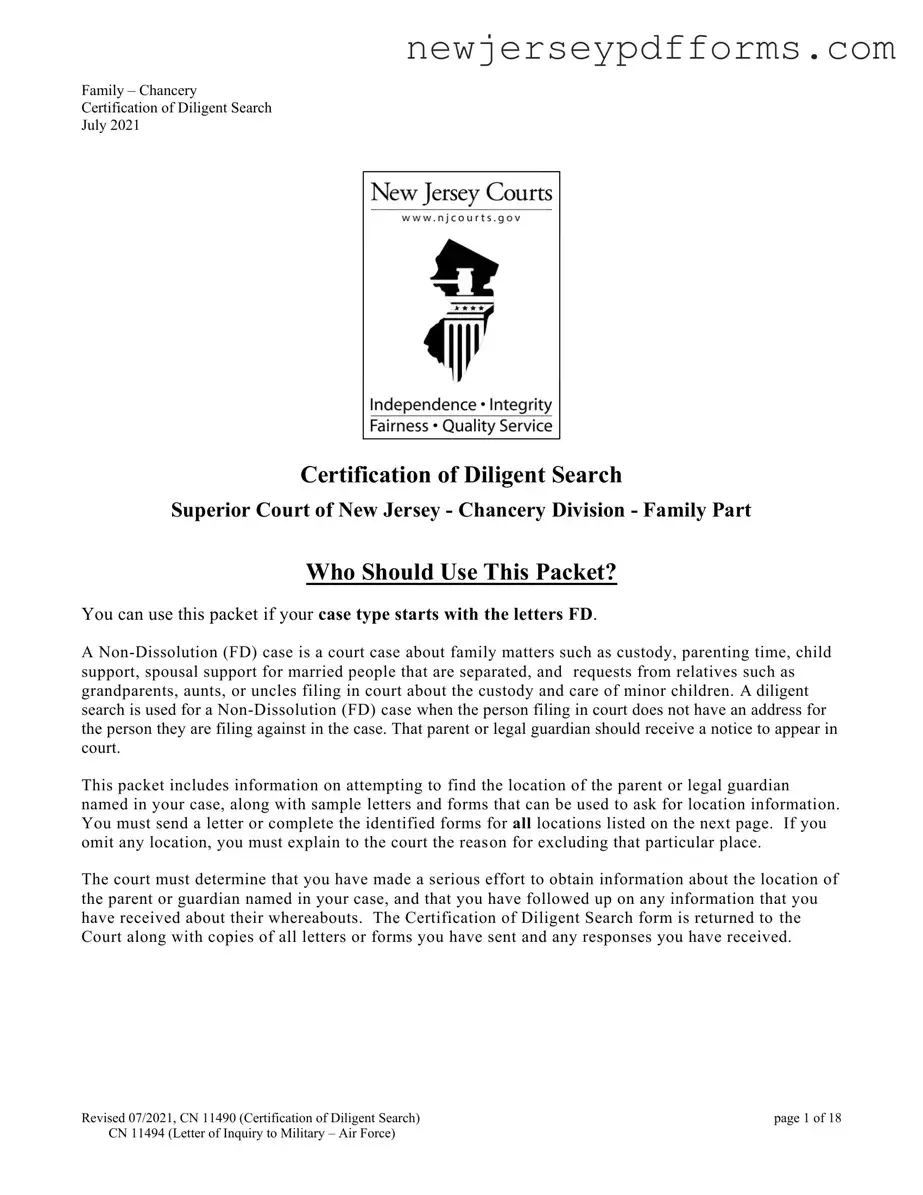What is the NJ Diligent Form and who should use it?
The NJ Diligent Form, officially known as the Certification of Diligent Search, is used in Non-Dissolution (FD) cases in New Jersey. These cases involve family matters such as custody, parenting time, and child support. You should use this form if you do not have a current address for the person you are filing against. This form helps you demonstrate to the court that you have made serious efforts to locate that individual so they can receive notice to appear in court.
What steps are involved in completing the Diligent Search Certification?
To complete the Diligent Search Certification, you must send letters or forms to people or agencies that may have the address of the individual in question. This includes relatives, last known employers, and various government agencies. You must keep copies of all correspondence and any responses received, as these will serve as evidence of your diligent search efforts. The court requires this documentation to assess the seriousness of your attempts to locate the individual.
What types of letters or forms should I send?
You should send letters to the individual's relatives and last known employers. These letters must be sent via both regular and certified mail. Additionally, you may need to submit requests to the New Jersey Motor Vehicle Commission for driver license information, and to military branches if the individual may be serving. Sample letters are provided in the packet to assist you in this process.
How do I demonstrate that I made a serious effort to locate the individual?
To demonstrate your efforts, you must send letters or forms to all the locations listed in the instructions. If you choose to omit any location, you must be prepared to explain your reasoning to the court. The court will evaluate your efforts based on the documentation you provide, including copies of letters sent and responses received.
What happens after I complete the Diligent Search Certification?
Once you have completed the Certification of Diligent Search, you must submit it to the court along with copies of all letters or forms you sent, as well as any responses you received. This submission is critical for the court to understand the extent of your search efforts. Make sure to keep your records organized and accessible for this purpose.
What is the timeline for processing requests related to the Diligent Search?
Processing times can vary. Be prepared for some requests, particularly those sent to military branches or government agencies, to take several weeks. It is advisable to start this process as soon as possible to avoid delays in your case. Keep track of all correspondence and follow up if you do not receive responses within a reasonable timeframe.

